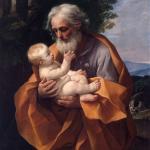Timothy F. Kauffman was raised Catholic, converted to Protestantism in 1990, and is now a Presbyterian (PCA). He has written, “I was saved out of Roman Catholicism, and into Christianity, . . . Roman Catholicism was out of accord with the Gospel of Jesus Christ.” Timothy is author of the books, Quite Contrary: Biblical Reconsiderations of the Apparitions of Mary (1994), Graven Bread: The Papacy, the Apparitions of Mary, and the Worship of the Bread of the Altar (1995), and is co-author with Robert M. Zins, of A Gospel Contrary!: A Study of Roman Catholic Abuse of History and Scripture to Propagate Error (April 24, 2023). He has been blogging about theology and Catholicism since 2014. His words will be in blue.
*****
I will be responding to one portion of Timothy’s article, ” ‘We Don’t Worship Mary’ Part 2″ (6-15-14).
It should go without saying that Roman Catholic saints are intentionally held up as examples for the flock to imitate. . . . “Saints” are examples with whom we can identify, and who we aspire to imitate. Indeed, the Roman church has held saints up for “imitation by all” precisely because we can identify with them. The Roman Catholic web site, Catholic Legate, emphasizes this, listing it as one of the three pillars of the doctrine of the communion of saints:
“The second pillar of this doctrine rests on the imitation of virtuous people. Many Protestants … do not accept that we are to imitate anyone but Jesus [but] it is not a biblical teaching to refuse imitation of the saints.”
Another Roman Catholic apologetics web site, explains that part of the canonization process through which saints are officially recognized, is to determine whether their lives can be held up “as examples to be imitated.”
We repeat this principle for a reason. Saints are considered necessary to inspire the flock, encourage obedience, and to offer real life examples for the sheep to imitate. . . .
Rome’s saints model for us a veneration that is indistinguishable from worship. . . .
We must understand that the saints are people who are very much like us in their humanity, and so their “holiness” is held out by Rome as an example to us that we might imitate it.
Timothy doesn’t like the notion and practice of imitating exceptionally holy and righteous people. Moreover, he argues that such imitation reduces or collapses to veneration, which in turn “is indistinguishable from worship.” If that’s true (it isn’t), then according to Timothy’s reasoning, the Bible teaches that human beings are to be worshiped. But of course it doesn’t.
Holy Scripture teaches (just like Catholics do) that God alone is to be worshiped and adored, and that saintly human beings ought to be imitated, honored and venerated, because, after all, God shares His glory with them. Paul commands his followers to imitate him, just as he, in turn, imitates Christ (1 Cor 11:1; 1 Thess 1:6). The motif of imitation is found in at least sixteen passages of the New Testament:
Romans 4:12 (RSV) . . . follow the example of the faith which our father Abraham had before he was circumcised.
1 Corinthians 4:16 I urge you, then, be imitators of me.
1 Corinthians 11:1 Be imitators of me, as I am of Christ.
Philippians 3:17 Brethren, join in imitating me, and mark those who so live as you have an example in us.
Philippians 4:9 What you have learned and received and heard and seen in me, do; and the God of peace will be with you.
1 Thessalonians 1:6-7 And you became imitators of us and of the Lord, for you received the word in much affliction, with joy inspired by the Holy Spirit; [7] so that you became an example to all the believers in Macedo’nia and in Acha’ia.
1 Thessalonians 2:14 For you, brethren, became imitators of the churches of God in Christ Jesus which are in Judea; for you suffered the same things from your own countrymen as they did from the Jews,
1 Thessalonians 4:1 Finally, brethren, we beseech and exhort you in the Lord Jesus, that as you learned from us how you ought to live and to please God, just as you are doing, you do so more and more.
2 Thessalonians 3:7-9 For you yourselves know how you ought to imitate us; we were not idle when we were with you, [8] we did not eat any one’s bread without paying, but with toil and labor we worked night and day, that we might not burden any of you. [9] It was not because we have not that right, but to give you in our conduct an example to imitate.
1 Timothy 4:12 set the believers an example in speech and conduct, in love, in faith, in purity.
Titus 2:7 Show yourself in all respects a model of good deeds, and in your teaching show integrity, gravity,
Hebrews 6:12 so that you may not be sluggish, but imitators of those who through faith and patience inherit the promises. (cf. Hebrews, ch. 11: “the heroes of the faith”)
Hebrews 13:7 Remember your leaders, those who spoke to you the word of God; consider the outcome of their life, and imitate their faith.
James 5:10-11 As an example of suffering and patience, brethren, take the prophets who spoke in the name of the Lord. [11] . . . You have heard of the steadfastness of Job . . .
1 Peter 5:3 not as domineering over those in your charge but being examples to the flock.
3 John 1:11 Beloved, do not imitate evil but imitate good. He who does good is of God; he who does evil has not seen God.
John Calvin, commenting on Hebrews 12:1, concurs:
This conclusion is, as it were, an epilogue to the former chapter, by which he shows the end for which he gave a catalogue of the saints who excelled in faith under the Law, even that every one should be prepared to imitate them; and he calls a large multitude metaphorically a cloud, for he sets what is dense in opposition to what is thinly scattered. Had they been a few in number, yet they ought to have roused us by their example; but as they were a vast throng, they ought more powerfully to stimulate us.
He says that we are so surrounded by this dense throng, that wherever we turn our eyes many examples of faith immediately meet us. The word witnesses I do not take in a general sense, as though he called them the martyrs of God, and I apply it to the case before us, as though he had said that faith is sufficiently proved by their testimony, so that no doubt ought to be entertained; for the virtues of the saints are so many testimonies to confirm us, that we, relying on them as our guides and associates, ought to go onward to God with more alacrity.
Protestants today usually argue that great Christian figures of the past can provide inspiration and example for us in our Christian walk today, but they will deny that we ought to venerate them. They say this because they have drawn a false dichotomy between the worship and adoration of God himself and the veneration of those children of God who show forth His glory by displaying the grace that He gave them to be what they are.
***
***
Photo credit: Saint Paul Writing His Epistles (c. 1620), attributed to Valentin de Boulogne (1591-1632) [public domain / Wikimedia Commons]
Summary: Presbyterian critic of Catholicism Timothy F. Kauffman doesn’t like the notion of imitation of holy people. The NT, on the other hand, provides sixteen prooftexts for it.














